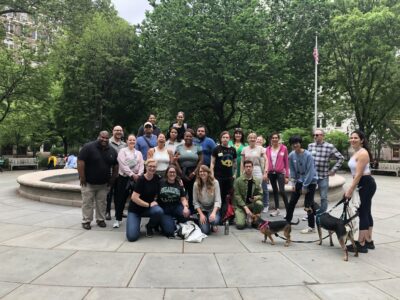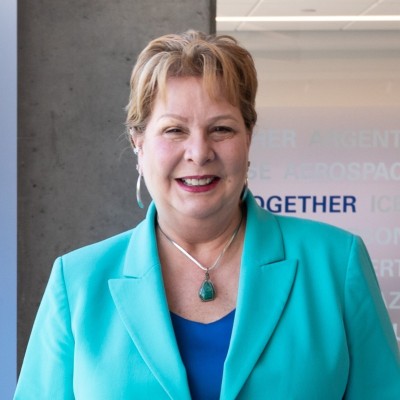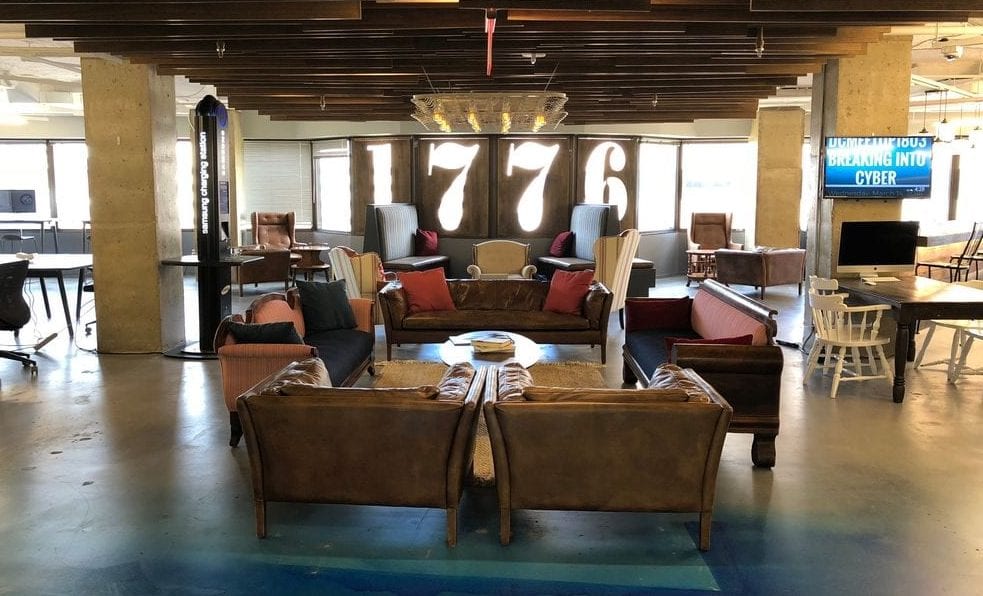On Monday, Philly and D.C.-based coworking company 1776 announced its first accelerator program since merging with Benjamin’s Desk in 2017.
Happening this fall at the company’s D.C. campus, the three-month accelerator program looks to provide 10 startups in regulated industries (think healthcare, biotech or transportation) with “access to our dynamic curriculum, network relationships, capital partners, curated events, and workspace on campuses,” the company said in an email.
Per 1776 Chief Strategy Office Penny Lee, though the accelerator is at a nascent stage, the goal is to produce two annual cohorts, and the plan is to incubate another 10 or so “investor-ready” companies in the company’s Philly campus in the spring.
As our sister site Technical.ly DC reports, the accelerator isn’t directly providing funding nor will it take equity from founders. The focus is on getting the companies “investor-ready” by the end of the program, which will wrap-up with a demo day in front of investors, Lee said.
ApplyLee said the accelerator’s focus on regulated industries harkens back to the foundation of 1776.
“When 1776 first launched, the overall thesis was that the next wave of the internet would focus on spaces like energy, healthcare, transportation and education, which are regulated,” said Lee, who was part of the company’s founding advisory board back in 2013. “Most tech companies now face some type of regulation: Uber, Facebook, 23&Me, which takes a different skill set to navigate. Tech is moving fast and governments are trying to react.”
The accelerator is also building upon lessons from a March 2017 pilot program called Startup Cohort, which offered mentorship and networking opportunities for 20 startups.
“We learned from it and built from it,” said Lee. “Making it more robust and targeting slightly later-staged companies. For this one we are focused on those that are [minimum viable product] and beyond.”
#tbt the last time @1776 did this –> https://t.co/WGoFQAKJ9G https://t.co/vjI5oIvu4X
— Tajha Sophia Chappellet-Lanier (@TajhaLanier) July 16, 2018
The launch of the accelerator’s focus is curiously aligned with the release of Evan Burfield’s new book: Regulatory Hacking, coauthored with U.S. Chamber of Commerce communications director J.D. Harrison. Burfield, cofounder of 1776 and now CEO of spinout company UNION, will be involved in the program, Lee said.
“We’re still working through the various weeks, but I believe he will be teaching one of the classes,” Lee said. “We’re very collaborative.”
All in all, the accelerator program is of note, if only because it marks the first formal, post-merger move on the accelerator side of the business from 1776, which now manages around 200,000 square feet of coworking space across D.C., Philly and an upcoming site in Brooklyn.
Join the conversation!
Find news, events, jobs and people who share your interests on Technical.ly's open community Slack

Why is it so hard to find entry-level software engineering jobs?

Philly ‘tech walks’ encourage professionals to parade the streets — to build their networks

'Be bold': This digital innovation and business strategist urges fellow women leaders to be their authentic selves

